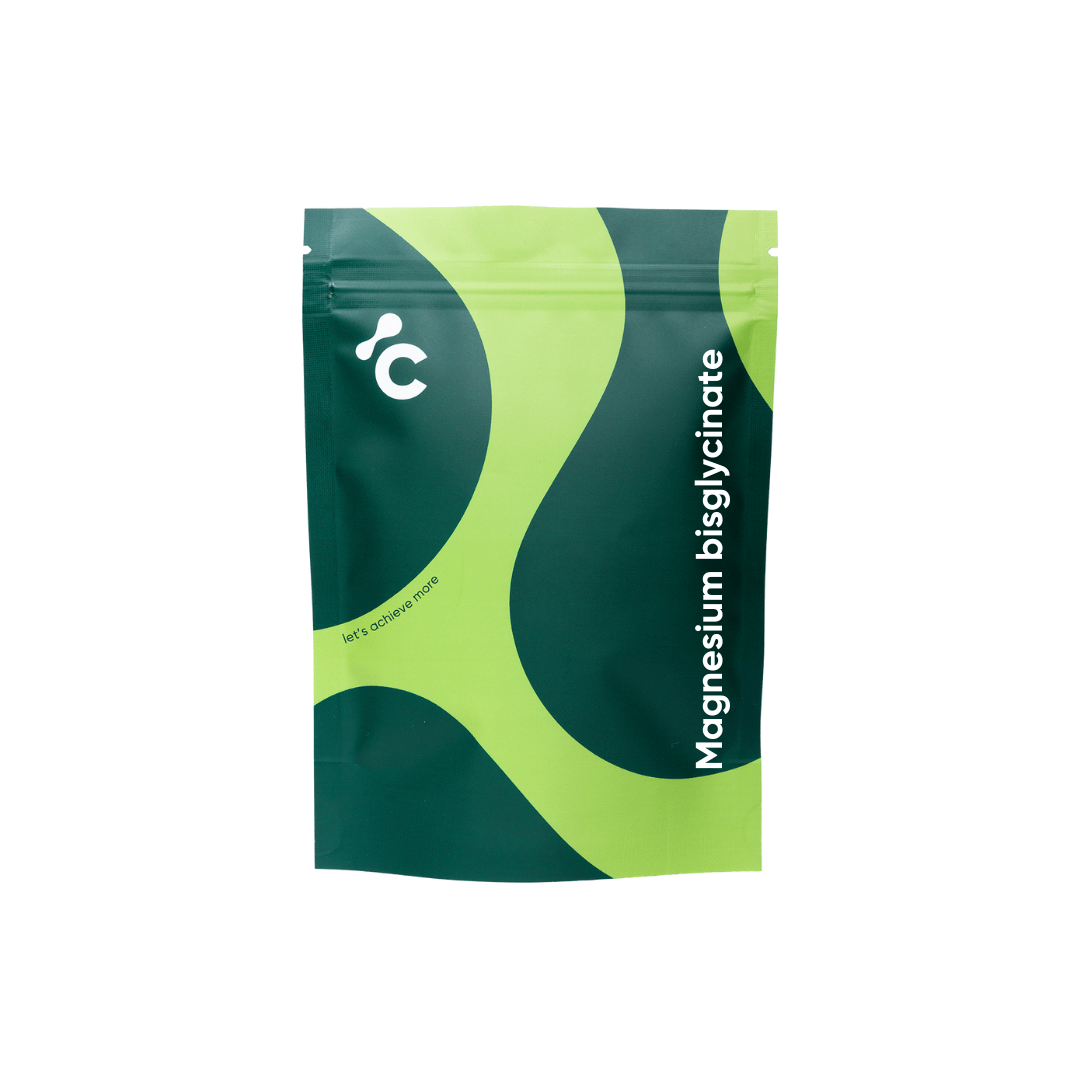Does Magnesium Glycinate Help with Sleep? A Look at What People Say

Many people wonder if magnesium glycinate can help improve sleep. This supplement combines magnesium with glycine, an amino acid, making it easy for the body to absorb. People use it hoping to sleep better. In this article, we explore experiences from people who have tried magnesium glycinate to see how it has affected their sleep. Remember, everyone’s experience is different, and what helps one person might not help another. We’ll look at these personal experiences to understand more about magnesium glycinate’s potential effects on sleep, without claiming it works for everyone.
Table Of Contents
Article Methodology
To make sure this article is helpful and trustworthy, we carefully followed these steps in our research:
- Focusing on Real Feedback: We read a lot of feedback from users about their experiences with magnesium glycinate. This feedback is the main focus of our article, giving you real-world insights.
- Where We Got the Feedback: We gathered these personal stories from websites like Reddit and Quora, and other places where people talk about supplements like Nootropics. These platforms offer a wide range of personal experiences.
- About Scientific Claims: We understand that personal stories are not scientific proof. We don’t claim that these stories are scientifically accurate or that you should follow them without thinking. Instead, we share these stories to help you understand what others have experienced.
- Being Open About Sources: We are open about where we got our information. This helps you trust what we say and lets you check the sources yourself if you want.
By following these steps, we aim to create a reliable and useful article based on what real people have said about their experiences with magnesium glycinate. We encourage you to think of this information as part of your overall understanding of health and to talk to a healthcare professional if you’re considering using supplements.
What is Magnesium Glycinate?
Magnesium is a crucial mineral that plays a role in numerous bodily functions, including muscle and nerve function, regulating blood pressure, and supporting the immune system. Magnesium glycinate is a form of magnesium that combines magnesium with glycine, an amino acid. This combination is believed to enhance the absorption of magnesium in the body.
User Experiences: Does Magnesium Glycinate Help for Sleep?
Understanding the potential impact of magnesium glycinate on sleep through the experiences of those who have tried it offers valuable insights. Here are some anonymized personal accounts that explore different aspects of its effectiveness.
Significant Improvement in Sleep Quality
Magnesium glycinate appears to have varied effects on different individuals. Some users report significant improvements in their ability to fall asleep and stay asleep, suggesting that it can be highly effective for some. However, others experience more moderate improvements, indicating that while magnesium glycinate may help, it is not a universal solution for sleep issues.
One user described a notable change after beginning their regimen with magnesium glycinate, saying: “I have struggled to fall asleep and stay asleep for at least 15 years. Six weeks ago, I started magnesium glycinate, and it has drastically improved my ability to fall asleep and stay that way.” This testimony suggests that magnesium glycinate can potentially offer significant benefits for those with persistent sleep difficulties.
Moderate Relief from Restlessness and Insomnia
For those suffering from conditions like restlessness and insomnia, magnesium glycinate often provides some relief, though the extent varies. It helps reduce the severity of symptoms but may not completely eliminate them, serving as a partial rather than a full solution. Reflecting on this one of the users shared: “Magnesium has definitely helped me too. But sadly, it’s taken my insomnia and restlessness from a 12/10 to a 9/10. Still better than nothing but not some magic cure.” This comment points out that while the supplement does not solve all sleep problems, it may reduce their severity.
Combination with Other Supplements
There is a suggestion from some users that combining magnesium glycinate with other supplements, such as vitamin D, may enhance its effectiveness. This combination seems to be beneficial for better absorption and possibly greater overall impact on sleep quality. One user noted the benefits of such a combination: “Can confirm – made a big difference for both when I took them together.” This experience highlights the potential for increased effectiveness when magnesium glycinate is part of a broader supplement strategy.
Safety and Consultation
The importance of safety and professional advice cannot be overstated, especially when starting a new supplement. Highlighting this, a user cautioned: “Magnesium is hugely important in the body, and too much can cause terrible issues! Talk to your doctor.” This advice serves as a reminder of the need for caution and consultation with healthcare providers to avoid potential side effects.
Overall, magnesium glycinate is perceived positively by many as a helpful aid in improving sleep quality, particularly for those dealing with specific issues like restless legs syndrome or general insomnia. However, effectiveness can vary, and the best approach includes a consultation with a healthcare provider to ensure safety and tailored advice based on individual health needs and conditions.
How People Use Magnesium Glycinate for Better Sleep
Based on the discussions and personal accounts from users, many individuals have found their own ways to incorporate magnesium glycinate into their routines to potentially enhance sleep quality. Here’s a look at when and how they use this supplement based on their shared experiences:
Timing of Dosage
- Before Bed: The most common practice among users is to take magnesium glycinate shortly before bedtime. Many users report that taking the supplement 30-60 minutes before they intend to sleep helps them relax and prepare for rest.
- Consistent Schedule: Some users emphasised the importance of taking magnesium glycinate at the same time each night to maintain a regular routine, which can itself be beneficial for sleep.
Method of Intake
- Capsule Form: Magnesium glycinate is often taken in capsule form, which is the preferred method for many due to convenience and dosage accuracy.
- With Water: Users generally take the supplement with water to aid absorption and decrease the likelihood of stomach discomfort.
- With Other Supplements: As noted in the discussions, some individuals combine magnesium glycinate with other supplements like vitamin D or vitamin B6, which are believed to enhance its absorption and effectiveness.
- Powdered Form: A few users prefer powdered forms of magnesium glycinate, which can be mixed into a nighttime beverage. They find this method easier to incorporate into their evening routine.
Dosage
- Personalised Dosing: The amount of magnesium glycinate taken can vary widely among individuals. Many start with a low dose and adjust based on their body’s response and the severity of their sleep issues.
- Guidance from Healthcare Providers: Several users mentioned the importance of consulting with a healthcare provider to determine the right dosage to avoid potential side effects and maximise benefits.
These practices highlight the personalised approaches people take to using magnesium glycinate for sleep, tailored to their specific needs and experiences. While many have found these methods helpful, it’s essential to approach supplementation with caution and ideally under the guidance of a healthcare professional to ensure safety and efficacy.
Side Effects People Reported by Users
While many users have reported positive effects of magnesium glycinate on their sleep, some have also shared potential side effects they experienced. It’s important to consider these side effects when deciding whether to try this supplement. Here’s a summary of the common side effects mentioned:
- Gastrointestinal Issues: Some users have reported experiencing mild to moderate gastrointestinal discomfort, including diarrhoea and stomach cramps. This is a relatively common side effect of magnesium supplements, especially when taken in higher doses.
- Headaches: A few individuals mentioned experiencing headaches after starting magnesium glycinate. While not as commonly reported as gastrointestinal issues, it’s something to be aware of.
- Drowsiness: While drowsiness can be a desired effect at night, some users noted that taking magnesium glycinate made them feel overly sleepy or lethargic during the day, especially if they took high doses.
- Muscle Weakness: Rarely, some people have reported muscle weakness as a side effect. This is not a typical reaction and may be related to other underlying factors, but a few anecdotal reports have made this connection.
- Allergic Reactions: Although very rare, there have been isolated reports of allergic reactions to magnesium glycinate, which can include symptoms like rash, itching, or swelling.
It’s crucial to start with a low dose of magnesium glycinate and gradually increase it as needed, paying attention to how your body reacts. If you experience any adverse effects, it’s advisable to reduce the dosage or discontinue use and consult a healthcare provider. Remember, while side effects can occur, they vary greatly from person to person, and not everyone will experience them.
Disclaimer
The content provided in this article is for informational purposes only and is based on personal testimonials and user discussions. It is not intended to serve as a substitute for professional medical advice, diagnosis, or treatment. Always seek the advice of your physician or other qualified health provider with any questions you may have regarding a medical condition or before starting any new treatment or supplement regimen.
Sources:
https://www.reddit.com/r/IsItBullshit/comments/12bef82/isitbullshit_magnesium_glycinate_can_help/
https://www.quora.com/Does-magnesium-glycinate-help-with-insomnia
https://pubmed.ncbi.nlm.nih.gov/12163983/
https://www.sciencedirect.com/topics/nursing-and-health-professions/magnesium-glycinate





